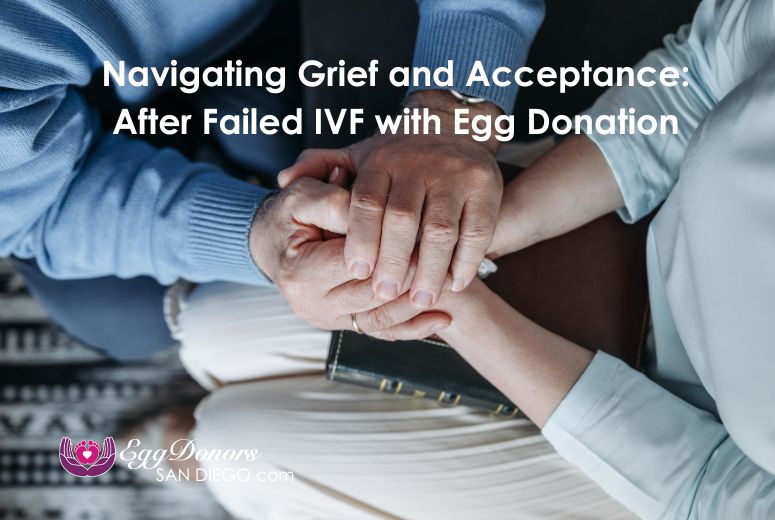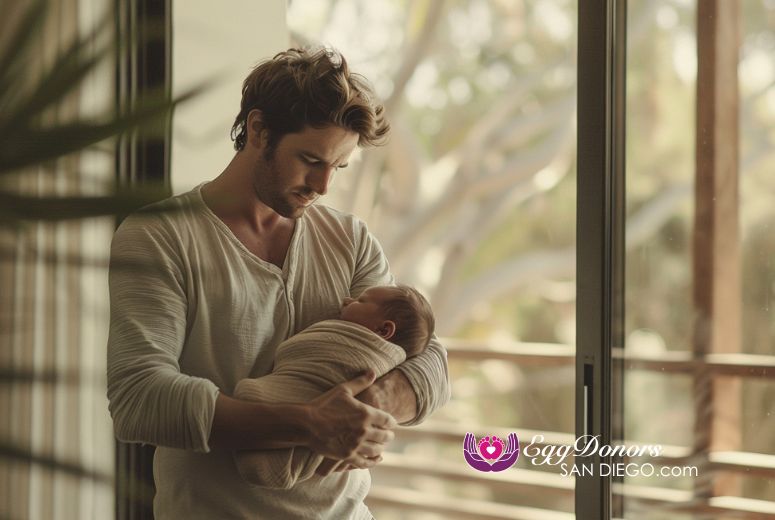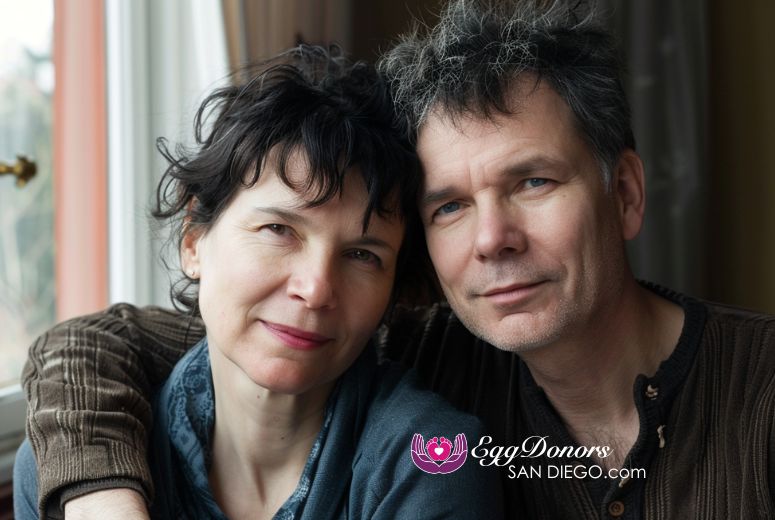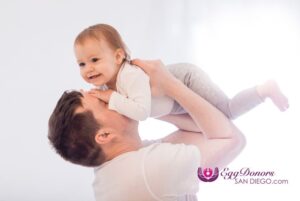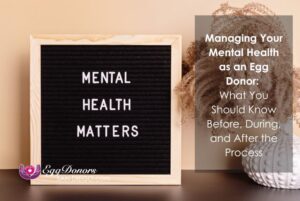The journey to parenthood is often one of extraordinary hope, especially when it involves the decision to pursue egg donor IVF. But when a cycle doesn’t result in pregnancy, the emotional toll can be devastating. Failed IVF with egg donation is a complex loss—one that blends disappointment, financial stresses, and the deep ache of unrealized dreams.
Unlike other forms of grief, IVF grief can feel invisible to others. Yet for those experiencing it, the pain is all-consuming. This article is for you—the hopeful parent navigating the heartache of a failed fertility cycle—to offer compassion, insight, and a path forward toward acceptance after IVF failure.
“When IVF doesn’t result in pregnancy, particularly after using an egg donor, the grief can be profound. It’s essential to honor that loss and process it fully before making your next decision,” says Dr. Minoos Hosseinzadeh, Founder and Medical Director of EggDonorsSanDiego.com.
What Does Failed IVF with Egg Donation Mean?
Failed IVF with egg donation refers to an unsuccessful embryo transfer using an egg from a donor, resulting in no pregnancy. This may occur after one or more frozen embryo transfer cycles, despite strong embryos, favorable uterine conditions, and optimal lab protocols.
Unlike traditional IVF, this process carries emotional weight tied not only to the failure of implantation but also to the reliance on donor genetics. For many, it marks a final step in a long fertility journey.
The Emotional Impact of Failed IVF
The emotional impact of failed IVF often mirrors grief associated with miscarriage or loss of a loved one. But it’s also layered with the psychological weight of decisions made along the journey—choosing an egg donor, coordinating with a partner or surrogate, and investing time, money, and hope.
- Shock or numbness after receiving negative test results
- Sadness or depression that lingers beyond a few weeks
- Strong sense of failure
- Isolation from others who don’t understand the fertility journey
- Anxiety about future fertility decisions
- Resurfacing grief from past losses or failed cycles
“Grief in infertility is real,” says Dr. Hosseinzadeh. “It’s not just the loss of a pregnancy—it’s the loss of the dream you’ve nurtured with every step of treatment.”
IVF Disappointment: Why It Hurts So Deeply
IVF disappointment is unique. It’s not always recognized in the same way miscarriage is, yet the pain can be equally profound. You may have envisioned baby milestones, imagined your child’s features, or even celebrated the embryo transfer as the beginning of new life.
When that vision doesn’t come to fruition, it can feel like losing a child who never existed—and few outside the fertility world truly understand that kind of pain.
In addition, the logistical intensity of IVF—from injections to appointments to financial stress—adds another layer of exhaustion and disillusionment.
Miscarriage vs. Failed IVF: A Subtle Distinction, Shared Grief
While a miscarriage vs. failed IVF may differ medically, both involve grief over the absence of pregnancy. One involves the loss of a developing embryo; the other, the loss of a deeply hoped-for start.
Both deserve space, validation, and support.
Support After IVF Failure: What Helps
Support after IVF failure is crucial. Whether it’s professional counseling, online communities, medical consultation with your fertility specialist, or intimate conversations with trusted friends, healing is rarely linear and never meant to be done alone.
- Reproductive counseling with a fertility psychologist
- Peer support groups for infertility and IVF loss
- Journaling or creative expression to process the grief
- Spiritual or mindfulness practices for grounding
- Medical consultation to explore the clinical next steps
“Mental health after IVF matters as much as physical outcomes,” says Dr. Hosseinzadeh. “No one should have to navigate fertility treatment loss without emotional support.”
Acceptance After IVF Failure: Finding Your Way Forward
Acceptance after IVF failure doesn’t mean giving up. It means making peace with what was out of your control and opening space to explore what’s next—whether that’s another cycle, egg donor reassessment, embryo donation, surrogacy, adoption, or choosing to live childfree.
- Gently letting go of timelines or rigid outcomes
- Creating new definitions of family
- Reconnecting with your identity outside of infertility
- Seeking closure before making new decisions
- Honoring your effort, love, and resilience
“Acceptance isn’t resignation—it’s a recalibration of what’s possible,” Dr. Hosseinzadeh affirms. “It’s the most courageous step a person can take after grief.”
Rebuilding After a Failed Fertility Cycle
Here’s how to begin emotionally rebuilding after a failed fertility cycle:
- Give yourself time and permission to feel every emotion
- Avoid rushing into new decisions until emotionally ready
- Limit exposure to pregnancy announcements or triggering media
- Ask your clinic detailed questions about what might have gone wrong
- Advocate for yourself during follow-up appointments
- Explore reproductive counseling to process the grief
How to Move Forward After IVF
Deciding how to move forward after IVF can take weeks or months. There is no “right” amount of time to grieve or regroup.
- Further testing or second opinions
- Changing protocols or medications
- Switching donors or clinics
- Taking a break to restore mental health
- Discussing future options with your partner, therapist, or doctor
Whatever you choose, let it come from a place of self-compassion—not urgency.
FAQs: Navigating IVF Grief and What’s Next
If you’re ready to start your egg donation journey or explore your next step after loss, click here to learn more.


